Interesting social sciences/Social mobility, inequality and stratification
nequality and stratification
English subtitles exist in this video. Can social inequality between rich and poor be destroyed?
Сhoice of the channel of circulation.
English subtitles exist in this video. How to make a career? Selection of social circulation channels (politics, army, science, show channel, church, mass media and marriage) for different personality types.
Social mobility
[edit | edit source]
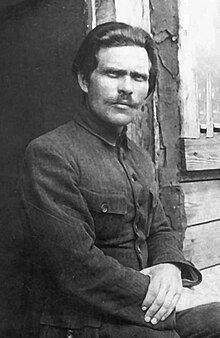



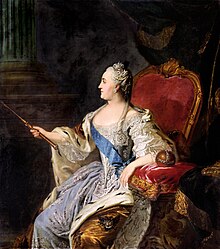
The example of vertical mobility is a transition of the person from a position of the ordinary school teacher on the position of director of school. The example of horizontal mobility is a transition from the teacher's position of one school on the teacher's position of other school.
Pitirim Sorokin became the founder of the theory of social mobility and Pitirim Sorokin has named the main channels of vertical circulation:
- Family and marriage.
- The army.
- The Church. The value of this channel reached peak in the middle ages, when Rome Papa could dismiss of Kings and Emperors, for example, the Rome Pope Gregory 7 has dismissed, humiliated and excommunicated of the German Emperor Henry 4 in 1077.
- School and scientific organizations. School was the main channel in society in ancient China.
- Political channel (governmental groups and parties).
- Show channel(Art).
- Business channel (Economic organizations)
- Mass media (Press, television, radio). [1]
In my opinion, there is evolution of origin of channels of social mobility, this channels have arisen in turn, value of previously arisen channels declined after emergence of new channels, and old channels were outdated and new channels became the most valuable. Family’s channel has arisen the first under primitive‐communal formation. To make career with help of family's channel, it need to marry on a Chief of tribe. Such channels as the army, political channel, church, art, school and science had arisen under slaveholding formation. Economic organizations were built on slave labor and corporal punishment during slaveholding formation, economic organizations are built on economic incentives under capitalist formation today. Such channels as business channel and mass media had arisen under capitalist formation. Thus, the family was most valuable channel in primeval society. Army and political channel were main channels in period slaveholding formation. Army, political channel and church were main channels in period feudalism. Business, army, political channel and mass media are main channels in period of capitalism.
Man can make career alone or in group. There are individual mobility and group mobility. When caste’s, racial or estate’s privileges exist that is restrictions of individual mobility exist, then representatives of lowest races, caste, estate and classes can organize riots, that to cancel these restrictions and and all this group can climb on steps of a social pyramid.
Examples of group mobility:
- Conflict of cliques for power occur within bureaucratic pyramid, for example, сlique of Lavrentiy Beria and Georgy Malenkov had won over clique of Andrei Zhdanov (“Leningrad affair”).
- Caste of Brahmins (priests) has won against caste of Kshatriyas (warriors) in ancient India. This is an example of collective ascension of Brahmins.[2]
- Bolsheviks were criminals before October 1917 coup, Bolsheviks overcame enormous social distance during the coup, as a result, Bolsheviks have occupied the status which was occupied by tsar’s aristocracy early. This is an example of collective ascension for the Bolsheviks. [3]
- Social status of Pontiffs and bishops had fallen in the past three centuries. This is an example of the collective demotion.[4]
- Status of African Americans was raised in America over the past 150 years as a result of the abolition of slavery and receiving by African Americans of civil rights. Matter reached that the mulatto psychologist Barack Obama could become by U.S. President.
- Status of women was raised in the developed countries of world over the past 100 years as a result of receiving of civil rights by women.
- Status of representatives of the working class was raised over the past 100 years as a result of receiving by representatives of the working class of civil rights, the right on strike and various benefit (unemployment benefits, sickness benefit, disability benefit, old-age benefit).
Mobile and immobile types of societies
[edit | edit source]Degree of vertical mobility is very large in mobile type of society, and degree of vertical mobility is very small in the immobile type of society. The example of immobile type of society is the caste system in Ancient India, although degree of vertical mobility is never equal nought, even in Ancient India. Degree of vertical mobility should be limited. The "sieve" sifting of individuals has to exist on each "floor", otherwise people unsuitable for this role can appear on the leading posts, and all society can die because of this unsuitable people during war or as a result of lack of reforms. Degree of vertical mobility can be measured, for example, on the share of "upstarts" among rulers and the high-ranking officials. This share of "upstarts" has to be counted in a percentages. This "upstarts" have started own career from the circle of poor people and this "upstarts" have finished own career in role of rulers.
Pitirim Sorokin has shown difference between the countries on degree of vertical mobility:
Western Roman Empire-45,6%
Eastern Roman Empire-27,7%
Russia before the October coup of-5,5%
France-3,9%
England-5%
USA-48,3%
Presidents of France and Germany-23,1%.:
There are many persons interested in promotion upward in any society, but only little quantity of this persons achieve these goal because social sieves prevent it on each floor of social hierarchy.
When the person comes to get a job, the person is estimated on several criteria. The professional organizations recheck compliance of abilities of the person with writing down in the diploma about education. The professional organizations test specific qualities of people: a voice for the singer, force for the fighter, etc. Every day and each hour become for the person as examination on professional suitability at work. This test can be considered as final test.[5]
What is a consequence of overproduction or underproduction for elite?
[edit | edit source]
An optimum ratio of number of people in elite and all population exists. Overproduction of number of people in elite leads to civil war or revolution. For example, the Sultan in Turkey had a big harem and many sons who began to destroy each other ruthlessly after the death of the Sultan in fight for a throne. Overproduction of elite leads in modern society to the fact that losers from elite begin to organize the underground organizations for the purpose of the armed seizure of power.
Underproduction of elite because of low birth rate among the highest layers results in need to give a part of elite positions to the people who haven't undergone selection. [6] It causes social instability and deep contradictions in elite between "degenerates" and "upstarts". For example, contradictions between "upstarts" (Catherine I of Russia, Alexander Danilovich Menshikov, Gavriil Ivanovich Golovkin, Pavel Ivanovich Yaguzhinsky, Pyotr Andreyevich Tolstoy) and "degenerates" (princes Dolgorukov, princes Golitsyn, prince Anikita Ivanovich Repnin) have led to series of the armed palace coups after death of Peter the Great. Too strict control leads to a full stop of "channels" at selection of elite often. Too strict control leads to degeneration of ruling elite. Too strict control leads to "subversive" activity of low standing rulers by vocation who can't make legal career and who seek to destroy physically of "degenerates" and who seek to seize elite positions of "degenerates".
Сhoice of the channel of social circulation for different personality types.
[edit | edit source]
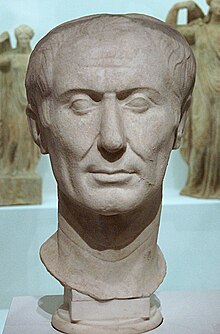



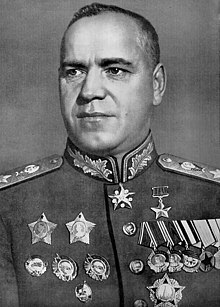




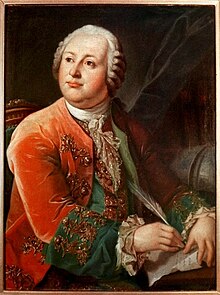
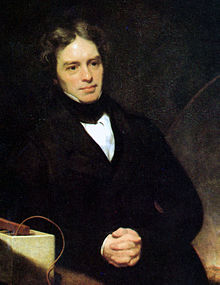
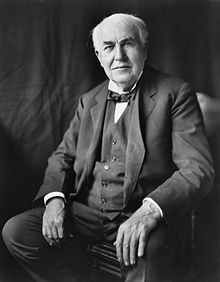




Pitirim Sorokin named eight the channels of the vertical mobility on which people move up or down on steps of a social hierarchy in the course of the personal career. My theory about the personality types allows to make recommendations about the choice of these channels. The psychologist and the technician are the complete antitheses each other, the speaker and the theorist are antitheses each other too therefore it is strictly forbidden for technician to choose the channels recommended for the psychologist, and it is strictly forbidden for the speaker to choose the channels recommended for the theorist. As a last resort, the speaker can choose the channels recommended for the psychologist or the technician, but the speaker will concede a little to these personality types professionally always when using their channels. Other types – respectively.
Thus, there are eight channels of the vertikal circulation:
- Family and marriage. Family channel is intended for the psychologists. Family channel is intended for the speakers partly. To marry on rich person is the best method to make a career for the psychologists. Such psychologists, as tsar Boris Godunov, Catherine I of Russia and such speaker partly as Catherine the Great made a career with help of this channel. Boris Godunov married on Maria Skuratova who was Malyuta Skuratov's daughter. Malyuta Skuratov was the chief investigator and the executioner during the reign of the tsar Ivan the Terrible. Then Boris Godunov has married own sister Irina to Feodor I of Russia who was a son of the tsar Ivan the Terrible. Boris Godunov made own career in such a method and Boris Godunov became tsar. Catherine the Great married for imperor Peter III of Russia, and then Catherine the Great have organized of palace coup, arrest and murder of own husband and as result Catherine the Great had became by empress.
- Army. This channel is intended for speakers. Speakers are able to order to soldiers better than other personality types. Speakers have inclination to adventurism. Speakers are able to make the correct decision in a short time and in the conditions of lack of full information about a situation. All great commanders were speakers – Alexander the Great, Julius Caesar, Napoleon 1 Bonaparte, Alexander Nevsky, Alexander Suvorov, Mikhail Kutuzov, Oliver Cromwell, Georgy Zhukov. Emergence of a large number of a difficult technique (guns, tanks, rockets, submarines, surface ships, planes, automobiles) has opened opportunities for employment of technicians on secondary roles in modern army.
- Church. This channel is intended for psychologists. It select only men in the Catholic and Orthodox church on a role of priests therefore woman-psychologists are forced to realize own abilities in the monastery, sect, occupation of sorcery and black magic. Psychologists unlike other the personality types have inclination to spirituality and fanatical belief in supernatural forces. The speakers penetrate into the management of church sometimes, although the speakers are deprived of fanaticism completely. All founders of religion – Jesus Christ, Muhammad, Gautama Buddha– were psychologists.
- School and scientific organizations. This channels is intended for theorists and this channel isn't intended for speakers completely. Only student - theorists are capable to study with all the heart. Only pupils ‐ speakers are the leaders of anti‐school culture and only pupils ‐ speakers organize of disruptions of lessons. Although the speakers become by directors of schools and scientific organizations subsequently. Teacher ‐ speakers has the lowest scientific level frequently, but teacher ‐ speakers has the best level of discipline in the school class. A division of labor exists in the science on the role of creators of theories and experimenters. The role of creators of theories is intended for theorists, a role of the experimenter is intended for technicians. All distinguished scientists (Euclid, Archimedes, Aristotle, Isaac Newton, Mikhail Lomonosov, Auguste Comte, Charles Darwin, Pitirim Sorokin) were theorists. All inventors in the field of technical sciences (Michael Faraday, Thomas Edison, Burrhus Frederic Skinner) were technicians. All authors of utopian theories (Platon, Karl Marx) were psychologists.
- Political channel. Speaker is the first grade in policy today. Only speakers can conquer in such forms of political conflict as national multi ‐ party elections, elections in the aristocratic senate, elections in the popular assembly, revolt and civil war. Only speakers possess the best oratorical abilities and the leader’s qualities. Only speakers know how to manipulate by crowd and to govern political party, to command by armed troop. The psychologist is the second grade of politicians today. The psychologist is forced to play a role of the religious prophet as Adolf Hitler during a public statement before crowd. But psychologist possesses the best level of mastery during the organization of plots, political murders, terrorist acts and struggle behind the scenes. Psychologist is the best candidature on the role of political tyrant in the past during epoch before invention of representative democracy. The technician is the third grade in the policy today. The technician is capable to to receive the Supreme power in the country only by inheritance from the father or by patronage. The role of official or bureaucrat is intended for technician the best of all. The theorist is the fourth grade in the policy today. The role of the adviser of ruler is intended for theorist. The speakers are “lions” in the policy, psychologists are “foxes” in the policy, technisians are conservatives, theorists are reformers and the advisers of ruler.
- Art or, in other words, show channel is intended for psychologists and partly for the speakers. The psychologist ‐ singer is able to sing songs "with soul" on the scene. The psychologist - poet is able to write lyrical works which causes retaliatory sympathy of public. The speaker is deprived of this ability to creation of lyrical works; therefore the speaker is forced to perform and write optimistical, civil or patriotic works which cause not enough sympathy of public, thus the speaker looks of support of the authorities and censorship, but the speaker doesn't look of support of public. Therefore the psychologist is the first grade in role the lyrical hero or the hero lover, and the speaker is the second grade in this role. The speaker is the first grade in role of the clown or сonferencier, and the psychologist is the second grade in this role. The speaker only entertains of public and the speaker is never humiliated as the clown. The psychologist as the clown begins to be humiliated, the psychologist plays laughter through tears therefore the public looks at the psychologist - klown as on the fool and with a certain share of contempt. Speakers have such role as brave hero in theater often.
- Mass media (Press, television, radio). This mass media channel and the profession of journalist is intended for the speakers, which know popular style of statement perfectly. The speakers consist in close acquaintance with a large number of people. The speakers are aware of all rumors. The speakers have oratorical abilities. Technicians and psychologists are the second grade in journalism. It can entrust to the technician a role of the announcer who is capable to read someone else's text on a piece of paper with expression. It can entrust to the psychologist sympathetic statement of biographies of great persons, the description of their inner world. It can entrust to the psychologist the review of the world of art. The mass media is very slippery and fast channel, it is possible to fly up in one day up or to roll down with help of this channel. For example, many show business stars became popular after performance on television only of one smash hit, and some ministers lost own posts after display on television of the discrediting information about their adventures in a brothel or about their communication with mafia. Examples of speakers on the television in Russia are Vladimir Solovyov from the telecast “Evening with Vladimir Solovyov ”, Valdis Pelšs from the telecast "Name That Tune”, Alexander Maslyakov from the telecast “Club of the happy and inventive people”. Example of technicians on the television is announcer Ekaterina Andreeva from program of news “Time”. Examples of psychologists on the television are Vitaly Vulf from the telecast “My silver sphere", Edvard Radzinsky as playwright, television personality, screenwriter, and the author of more than forty popular history books. An example of theorist on the television is Ivan Zatevakhin from the telecast "Dialogues about animals".
- Business channel (economic organizations). This chanel is intended for speakers and partly for technicians and psychologists. An example of the speaker - businessman is Vladimir Bryntsalov, which has bought a gold toilet bowl. It is possible to point to Boris Berezovsky, Mikhail Khodorkovsky and Roman Abramovich as an example of psychologists oligarchs. An impression is made that these psychologists have managed with help of frauds and a personal contact in the Kremlin to take of a considerable part of the former state ownership during privatization, and they didn't sustain the honest market competition.
Speakers are the most perspective candidates when using four channels (army, political channel, mass media and business channel) and partly perspective candidates when using else two channels (show channel and family).
Psychologists are the most perspective candidates when using three channels (church, a show channel and family) and partly perspective candidates when using else three channels (political channel, business channel and mass media), but the value of church and family has decreased because these channels are outdated today. Favourite the psychologist roles of the tyrant and secret methods of fight in policy are outdated today too. Only one modern channel ( the show channel) is at the disposal of psychologists. Crash in career waited of psychologists often, therefore psychologists seek to conduct a parasitic life at the expense of other the personality types. To justify own inability to do professional career, the psychologist is engaged by pipe dreams and utopias for example psychologist Karl Marx dreamed about communism, psychologist Platon dreamed about the ideal state where born aristocrats have to rule, psychologist Adolf Hitler dreamed about world supremacy of the German nation, psychologist Jean - Jacques Rousseau dreamed about return in a "gold" century, that is in primitive society. But the psychologist is the most unsurpassed master of behind scenes fight which goes in any office, psychologist is capable to win even against speakers in this behind scenes fight, for example psychologists Joseph Stalin and Leonid Brezhnev have won in behind scenes fight against all the opponents in fight for power.
Technicians are the second grade when using four channels (army, science, business, a show).
The theorist is first grade when using only of one scientific channel.
It is possible to draw a conclusion that only the speaker is capable to make meteoric career and to change one channel to another. The speaker is capable to make several careers in different professions during life. The speaker shows the maximum enterprise in achievement of the purpose even by means of criminal means, his meteoric career represents the sequence of unexpected takeoffs and catastrophic falls, Сareer of speaker Boris Yeltsin can as example of unexpected takeoffs and catastrophic falls.
Theorists are capable to do career by means of only one scientific channel due to the small number of worthy competitors in science because the share of theorists in population – 3% - is insignificant. But theorists isn't capable to make any other career, except scientific career. To do career alone without support of friends and colleagues is represented as difficult task.
Technicians hold stable average position on a social ladder because technicians are the second, but not the last grade when using many important channels. Technicians do career slowly and reliably, technicians creep on steps of a social ladder diligently and technicians change never from one channel to another, technician prefer to inherit of politic power.
Inequality and stratification
[edit | edit source]Utopia of Karl Marx about communism
[edit | edit source]Karl Marx dreamed about communism where the full social equality between people – economic, political and legal will be established, where exploitation of the person by the person will disappear. [7] Cancellation of exploitation means cancellation of social control and the social conflict. This idea of Karl Marx is a utopia because to construct social structure without the relations of the social conflict and social control isn't possible in principle. For example, the attempt of anarchists to cancel of the state inevitably conducts to seizure of power by bandits. It has occurred in Nestor Makhno's attempt to organize anarchist revolution in Ukraine in the years of civil war. Though Makhno's fight against the Bolshevist regime and protection of interests of the labor peasantry should be assessed positively. If people have identical income, then this people will cease to work absolutely and the economic ruin will come in society. The whole world studied on mistakes of Soviet Russia and the whole world drew conclusions how it isn't necessary to build social structure.
The causes of inequality
[edit | edit source]In opinion of Émile Durkheim, the cause of inequality is a necessity to encourage of the best people. Some professions are considered as more important than other profession in all societies. Warriors and healers were the most respected in primitive societies. The most important profession is a profession of priest in Puritan communities. The most important profession is a profession of businessman, banker, engineer and a doctor in modern society. If the person performs the main function in society that he must have the maximum number of prestige and wealth. Different level of talent at people is the second reason of inequality, and it need to reward of the most skillful people for their merits, the most skillful people have to perform the most important functions. Roles of the priest, the manager, and the technician were the most important functions at all times.[8] Modern society is constructed on equal opportunities and inequality of results of labour.
In my opinion, inequality is a inevitable consequence of conflict and the prerequisite of control. Winner must be richer than defeated man, otherwise there is no sense to enter to conflict. Controller must be richer and stronger of object of control, controller must have the status of the chief and authority, controller must be able to apply economic, administrative, moral sanctions and corporal punishment to the object of control. Wealth, prestige and power are prizes for a winner and wealth, prestige and power are a means for applying of sanction. Modern society is built on equality of opportunities to earn and inequality of profits which is received in result of own labour. In other words, people enter to conflict and in the market competition in modern society, where all people have equal chance on a victory and nobody has advantages and privileges on a victory. But most talented people of them win and become by economic controllers, private owners of enterprises in a result of this conflict, while losers become by objects of control or hired workers. Private owners have more wealth, prestige and power on merits in comparison with hired workers. Controllers have no privilege to guarantee of own high status to his children under capitalism. Controllers can only help of own children to receive this status by means of paid education, a personal contacts and the corresponding upbringing.
John Masionis asks a question whether really salary reflects a contribution of the person in development of society, whether such high degree of social inequality is reasonable? When the host of telecasts Oprah Winfrey with income in 100 million dollars earns in 2 days more, than the U.S. President George Walker Bush for the whole year on the president's post. Whether somebody will be able to claim that it is more important to conduct a talk show, than to direct the country? The size of the salary depends from a ratio on labor market of demand and supply in the countries with market economy. Stars of cinema and show business, outstanding athletes, authors of popular songs, successful managers and other professionals have rare talents on which demand exceeds supply therefore these stars earn very much. [9] In my opinion, the market is the best criterion of professional suitability, nothing is invented better than this criterion. The state is other regulator of level of income. The state paid to own citizens not for social value of their labour under socialism, but the state paid to own citizens for level of position held therefore rulers lived as tsars under socialism, and other citizens were equal in poverty. The market is the best regulator in comparison with the state, but the state has to add and correct market distribution of the incomes by means of heavy taxes on the income of rich people.
The changing of degree of social inequality in the course of history
[edit | edit source]Vilfredo Pareto considered that degree of economic inequality, a share of rich people as a part of the population is a thing constant. [10]
Karl Marx considered that a process of economic differentiation exists in the modern world – rich people grow rich more and more, and poor people grow poor more and more.[11]
Pitirim Sorokin has disproved these hypotheses with the facts in hands and Pitirim Sorokin has proved that the level of economic inequality fluctuates about one constant eventually. [12] Too strong strengthening of degree of inequality or equality is equally fraught with national catastrophe and shocks. Too strong strengthening of inequality leads to the fact that it is easy to overthrow or destroy of narrow group of millionaires. As has shown experience of South America, the oligarchical regimes are very unstable. Experience of policy of military communism in Russia has shown that after the decree of 1918 when the difference in income was limited by a ratio 175:100, then the ruin and hunger have come. The big share of representatives of the middle class gives stability to political system.
Gerrard Lenski has compared stages of development of society from the point of view of inequality and Gerrard Lenski has found:
- Inequality takes place least in societies of hunters and collectors of plants, for example, at Bushmen of South West Africa or at Indigenous of the central Australia.
- The political leader, the merchant and the priest have the greatest influence in gardening societies where only mattock is used for cultivation of the earth. Degree of social inequality low.
- Inequality is shown most brightly in agrarian societies where the plow is used for cultivation of the earth. A hereditary monarchy and slaveholding have arisen in agrarian societies.
- Inequality and concentration of the power are less in industrial societies, than in agrarian societies.[13]
Criterions for social inequality
[edit | edit source]Max Weber identified three criterions of inequality:
- wealth,
- prestige,
- power. [14]
Benjamin Barber added else three less important criteria of inequality:
- Level of education.
- The degree of the religious or ritual cleanliness in caste system in India.
- Ranking on related groups and ethnic groups.
Figures of social inequality:
[edit | edit source]- Pyramid.
- Rhombus.
Figure width to horizontally means the number of people with this size of income. There is an elite at top of a figure. The western society has done evolution from pyramidal structure to rhombus structure for the last hundred year. There is enormous most of the poor population and a small group of oligarchs in pyramidal structure. The large share of middle class exists in the rhombus structure. The rhombus structure is more preferable in comparison with pyramidal structure since the numerous middle class won't allow to small group of poor people to arrange civil war at rhombus structure. And the enormous majority consisting of poor people can overturn social system, arrange civil war and a senseless slaughter at pyramidal structure easily. The task of the Russian society consists in passing from a pyramidal figure of inequality which exists in Russia today to rhombus structure. Speaking more simply, it is necessary to get rid from oligarchy in Russia. The president Vladimir Putin tries to make it.
Social stratification
[edit | edit source]W. Lloyd Warner has put forward the theory about prestige of various layers (strata), of society on the basis of the statements of people about each other. Five layers (strata) of society exist in Russia today, the first layer (rich aristocrats) doesn't exist in Russia today because Bolsheviks have destroyed of rich aristocrats or Bolsheviks have sent of rich aristocrats from the country, Those aristocrats who have returned from abroad have no big wealth today.
In Warner’s opinion, the population of modern western society is divided into six layers (strata):
- Supreme stratum of the upper class class is a rich aristocrats, for example, Charles, Prince of Wales.
- The lowest stratum of the upper class are millionaires in the first generation, they parade own wealth, they have managed "sprout through asphalt", they are connected with criminal world sometimes, they have strong character, impudence and phenomenal enterprise. For example, the millionaire Vladimir Bryntsalov showed on television the expensive cottage and a gold toilet bowl, the oil oligarch Roman Abramovich has bought the English Chelsea Football Club.
- Supreme stratum of middle class is a highly educated intellectuals (doctors, lawyers) and businessmen (owners of capital). These intellectuals have managed to invent an outstanding invention and to get big profit on sale of this invention. For example, Bill Gates has invented the computer program Windows and Bill Gates has become the richest person in the world. Henry Ford used the conveyor for production of cars, as result Henry Ford managed to reduce the cost of cars in several times.
- The lowest stratum of the middle class are clerks, secretaries, cashiers, ordinary doctors, school teachers and others "white collars". They have low income in Russia.
- Supreme stratum of lower class is qualified workers ("blue collars"). There are qualified electricians, welders, turners, drivers of cars and so on.
- The lowest stratum of lower class is homeless tramps, beggars, criminals and the unemployed people. [15]
In my opinion, this stratification is result not only the reached education level, talent and ability, but mainly, this stratification is result of the conflict between people for the place in higher stratum.
Difference between historical forms of social stratification.
[edit | edit source]These historical forms of social stratification differ on degree of severity of "filters" on floors of social stratification.
- Castes are groups of people in social hierarchy where social elevators are switched off almost completely therefore people have no opportunity to do own career.
- Estates are groups of people in social hierarchy where strict "filters" limit strongly of social mobility and "filters" slow down the movement of "elevators".
- Strata are groups of people in social hierarchy where social "filters" don't create any artificial obstacles for persons interested to do own career, as the only condition for achievement of this purpose serves presence at the applicant of talent and financial means.
Financial means are the proof of presence at the applicant of talent and enterprise often. There is a dispute on in what the essence of a social class consists. In my opinion, the social class is a big group of people taking a certain place in the system of social control. The exploiter's class or highest class is a group of people who are controllers in society. The exploited class or lowest class is a group of people who are subject to control in society.
Social class
[edit | edit source]In my opinion, the notion "social class" is a little outdated Marxist notion. This notion was entered by Karl Marx. This utopian man considered that the history of mankind is history of fight of opposite classes with each other: slaves fought against slaveholders, serfs fought against feudal lords, hired workers fights against capitalists, antagonistic classes didnot exist still at primitive society, and classes and class fight have to disappear at communism.
In my opinion, it is necessary to criticize these utopian views of Karl Marx:
- There are six social strata today, but not two opposite classes, thus, according to Max Weber, Karl Marx has simplified social structure artificially, Karl Marx has distorted the reality, seeking to adjust the reality to the utopian axioms. In my opinion, the middle class is intermediary between the highest and lowest class and the middle class is an intermediary in the course of social control. The highest class controls the lowest class by means of the middle class. For example, the main representatives of the middle class are: the official, the manager, the overseer who on behalf of representatives of the highest class monitor for respect for norms and give the command for application of sanctions against violators of these norms from among representatives of the lowest class. Other representatives of the middle class are the accountant, the police officer and the executioner who have powers directly to apply sanctions (corporal and administrative punishments, bonus and fine) against violators of norms.
- The relations between controllers and objects to control, between the exploiters and operated class on Marx's terminology, it is impossible to reduce to one conflict between them. The controller and object of control cooperate with each other perfectly and it is mutually advantageous the most part of time. On the other hand, Karl Marx was right that classes differ from each other in the place in the system of social control. Thus, if to reject utopian forecasts of Karl Marx about communism, then it is possible to leave the notion "social class" in an arsenal of the terms suitable for sociological researches. The class system of society becomes by a meritocracy in the course of history gradually. A meritocracy means "the power of honored people", this word occurs from Latin mereō "praiseworthy".
Citations and references
[edit | edit source]- ↑ Pitirim A. Sorokin. Social and cultural mobility. The free press of Glencoe. Illinois. Part two. Social mobility. 8. The channels of vertical circulations. https://archive.org/details/in.ernet.dli.2015.275737
- ↑ Pitirim A. Sorokin. Social and cultural mobility. The free press of Glencoe. Illinois. Part two. Social mobility. 7. Social mobility. Its forms and fluctuations. 1. Conception of social mobility and its forms. Page 134. https://archive.org/details/in.ernet.dli.2015.275737
- ↑ Pitirim A. Sorokin. Social and cultural mobility. The free press of Glencoe. Illinois. Part two. Social mobility. 7. Social mobility. Its forms and fluctuations. 1. Conception of social mobility and its forms. Page 135. https://archive.org/details/in.ernet.dli.2015.275737
- ↑ Pitirim A. Sorokin. Social and cultural mobility. The free press of Glencoe. Illinois. Part two. Social mobility. 7. Social mobility. Its forms and fluctuations. 1. Conception of social mobility and its forms. Page 135. https://archive.org/details/in.ernet.dli.2015.275737
- ↑ Pitirim A. Sorokin. Social and cultural mobility. The free press of Glencoe. Illinois. Part two. Social mobility. 7. Social mobility. Its forms and fluctuations. 5. General principles of vertical mobility. Page 143. https://archive.org/details/in.ernet.dli.2015.275737
- ↑ Pitirim A. Sorokin. Social and cultural mobility. The free press of Glencoe. Illinois. Part two. Social mobility. 9. Mechanisms of social testing, selection and distribution of individuals within different social strata. 5. Family, school and church as agencies of testing. Page 199. https://archive.org/details/in.ernet.dli.2015.275737
- ↑ Neil Smelser. Sociology. New-Jersey Prentice Hall 1988. Chapter 9. Inequality, stratification and class. Inequality nature. Marx.
- ↑ Neil Smelser. Sociology. New-Jersey Prentice Hall 1988. Chapter 9. Inequality, stratification and class. Inequality nature.
- ↑ John J. Macionis. Sociology. 9th edition. Upper Saddle River, N.J Prentice Hall 2003. Chapter 10. Social stratification.
- ↑ Pitirim A. Sorokin. Social and cultural mobility. The free press of Glencoe. Illinois. Part one. The fluctuation of social stratification. 4. Fluctuation of Height and profile of economic stratification. Page 36. https://archive.org/details/in.ernet.dli.2015.275737
- ↑ Pitirim A. Sorokin. Social and cultural mobility. The free press of Glencoe. Illinois. Part one. The fluctuation of social stratification. 4. Fluctuation of Height and profile of economic stratification. Page 38. https://archive.org/details/in.ernet.dli.2015.275737
- ↑ Pitirim A. Sorokin. Social and cultural mobility. The free press of Glencoe. Illinois. Part one. The fluctuation of social stratification. 4. Fluctuation of Height and profile of economic stratification. Page 46. https://archive.org/details/in.ernet.dli.2015.275737
- ↑ Neil Smelser. Sociology. New-Jersey Prentice Hall 1988. Chapter 9. Inequality, stratification and class. Inequality in different societies.
- ↑ Neil Smelser. Sociology. New-Jersey Prentice Hall 1988. Chapter 9. Inequality, stratification and class. Inequality nature.
- ↑ Neil Smelser. Sociology. New-Jersey Prentice Hall 1988. Chapter 9. Inequality, stratification and class. Inequality nature.
